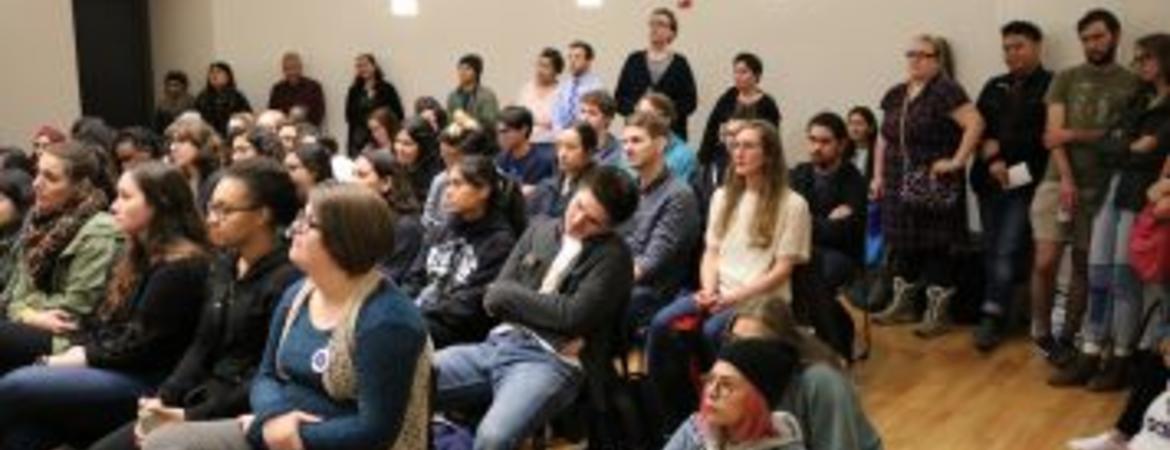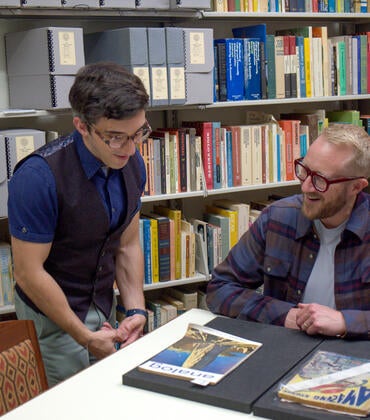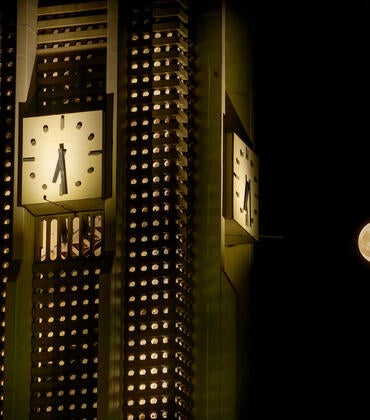For thousands, it was a week to march for civil and human rights. For the Department of Creative Writing, it was also a week to write and speak out for them.
UCR writers were joined by allies Thursday night to celebrate free expression at #WritersResist. Event moderators quickly turned into traffic controllers as dozens of audience members crammed into INTS 1111 to hear faculty, staff, and students read original works of literary protest through poems, plays, excerpts — even interpretive dance.
“Writing is a political act, and right now our democracy is in jeopardy,” said Kathleen Taylor, a second-year MFA student and organizer of #WritersResist.
The event, which follows a month energized by women’s marches, Martin Luther King Jr. remembrances, and the #MeToo movement, represents the third #WritersResist event at UCR, but those involved agree the tone is different a year after President Donald Trump’s inauguration.
“The shock has lessened. The fear and concerns have steadily increased,” said Allison Hedge Coke, distinguished professor of creative writing and faculty advisor of the event.
#WritersResist, also known as #WriteOurDemocracy, is a year-old movement founded by Erin Belieu and PEN America, an international community aimed at intersecting literature and human rights. In the days following the 2016 election, Hedge Coke and Miranda Tsang, a graduate student, had planned a literary protest at UCR at the same time PEN America was simultaneously launching #WritersResist.
“It was synergistic,” said Hedge Coke, who has been a PEN member for decades.
Thursday’s event organizers were eager to participate in this third iteration. “With nearly everything I write, I try to resist, to challenge” said organizer Ashanti Anderson, a second-year MFA student of poetry, who opened the event by reading her piece, “You Ain’t my Ally.”
[caption id="attachment_51295" align="alignright" width="356"]
The readers that followed drew on themes such as immigration, border walls, and xenophobia, some works more literal than others.
“Stop banning books that make brown people feel proud of themselves” read Sarah Borjas, a faculty lecturer, sharing her original poetry and receiving overwhelming support from the crowd.
Katie Ford, professor of creative writing and MFA program director, spoke about recent devastation in Puerto Rico, followed by a reading of excerpts from her critically acclaimed book of poetry, “Colosseum.” Ford’s book recalls the disastrous tangle of events following her evacuation during Hurricane Katrina through a series of poems that might seem all too familiar for Hurricane Maria victims today.
Jaclyn Hymes, a second-year MFA student and organizer of the event, said these patterns of injustice are disheartening, but she’s optimistic. Hymes, who specializes in surreal lyric poetry, said her writing has changed for the better.
“My poetry in the past year has delved into having a central sense of longing that wasn’t there before … (it’s) indicative that the nation is longing for change. Unintentionally my poetry has that.”
Anderson had a message for those in the large crowd looking to enact change themselves.
“I hope that each member of the audience considers the various forms of resistance they witnessed this evening, and are encouraged to find and fine-tune their own method,” she said.




